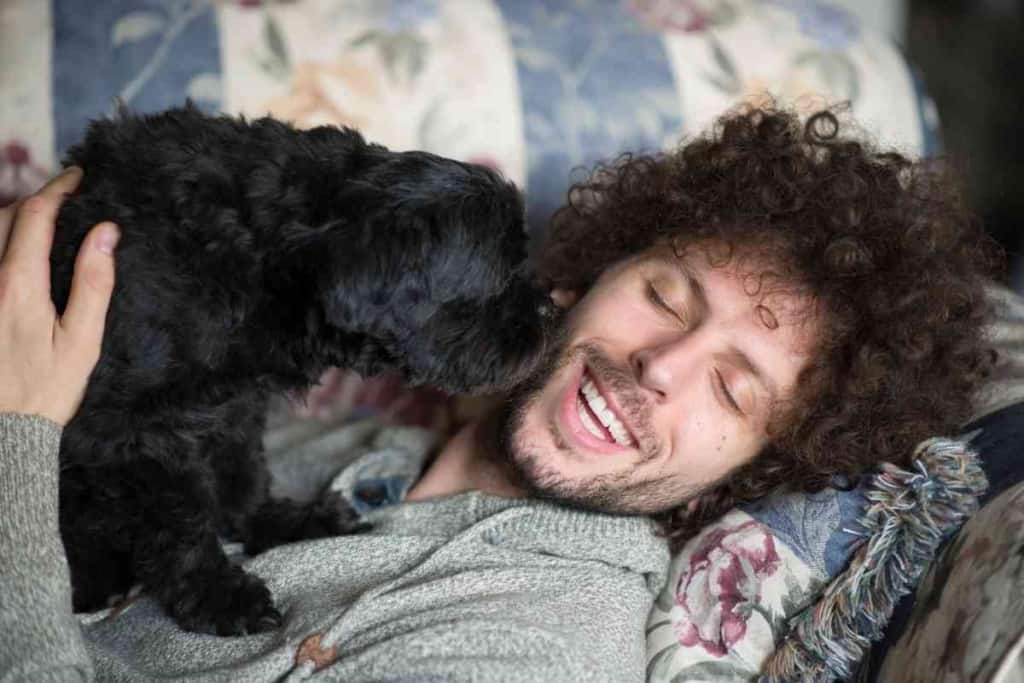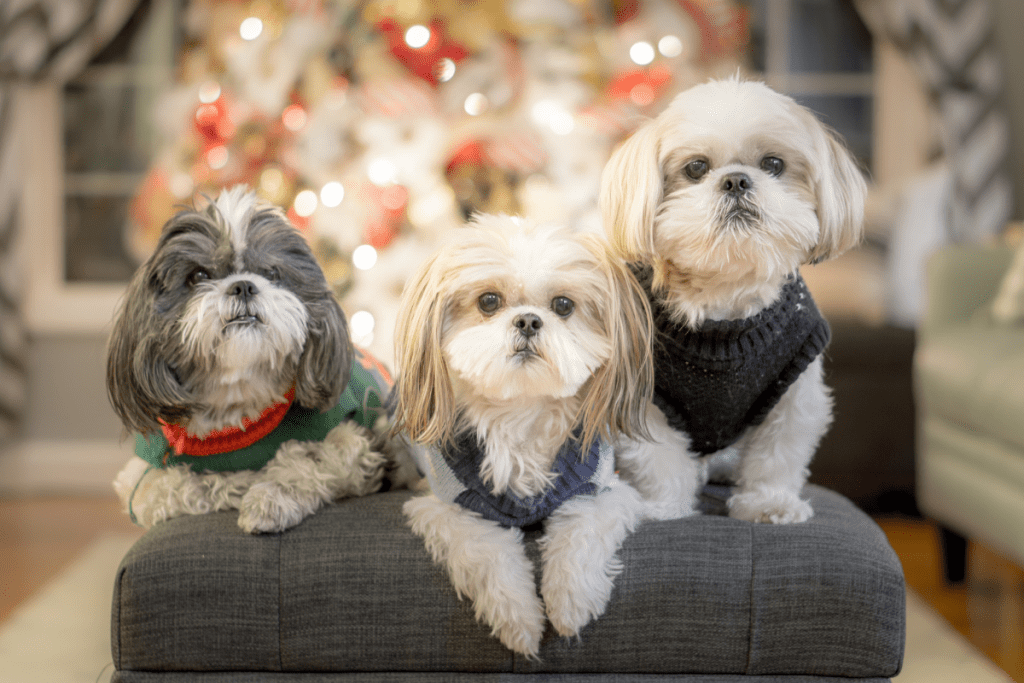Is A Shih Tzu A Good Family Dog? Why?
Shih Tzu are a lovely small breed of dog will big baby eyes that just scream CUTE! Who wouldn’t want to bring one of these lovable creatures into their family? But before you commit to bringing a Shih Tzu home to your family, there are actually a lot of things to consider about this particular breed.

Do Shih Tzus Make Good Family Dogs?
The Shih Tzu can be a good family dog. Still, many factors determine their personality, temperament, and behavior. Depending on the breeder or rescue, some Shih Tzu may not be right for a family with kids, and some may be better with older kids.
Shih Tzus have a sweet and loving temperament that makes them a wonderful family dog. They usually get along great with kids of all ages, adults, and other dogs or animals.
This is the breed’s standard personality and temperament. Still, it may not be the case in some instances, as with any dog, regardless of breeding.
Depending on their health, how they are raised, their litter mates, their mother, and their environment, some dogs may not make a good family dog. Their personality and temperament are perfect for a family, but if they are abused, have not been properly socialized, or are not trained, this may not be the case.
Shih Tzu’s that have been adopted and returned to the breeder or end up in a rescue can have behavioral issues that make them incapable of handling certain scenarios.
One of the best things that a potential Shih Tzu adopter can do is research the breeders in their area and select one that uses responsible breeding practices. These breeders are concerned with all areas of their puppy lives.
They spend tremendous amounts of time in their breeding process, ensuring that the puppies will be healthy and to the breed standard. They also devote lots of energy to the litter of puppies, preparing them for life outside the breeder’s home.
They start the socialization process and monitor the puppy’s and mother’s behavior. Good breeders attend to the care of the whole puppy, not just the physical. They care for the puppy’s mental, emotional, and behavioral state and their future.
They devote time, energy, and finances to each puppy because they truly care about the Shih Tzus they breed. For reputable breeders it’s not just about breeding, it’s about helping foster a healthy dog that lives a good life for many years to come. Incidentally, this can make Shih Tzus much more expensive than you may expect.
Breeders do tremendous amounts of research and study the background of the dogs they breed to ensure future puppies are healthy, have a good temperament, and align with the breed standard.
For this reason, they also learn a lot about each individual puppy. They will learn which Shih Tzu may be better in certain situations and if they have any issues, which can sometimes happen regardless of breeding.
Does training help make a Shih Tzu a better family dog if they have issues?

Yes, training can help any dog behave better if they have issues. Training is similar to school for humans. It teaches the puppy vital skills to live happily in their home environment. It teaches them how to behave and what is expected in varying situations.
Shih Tzus don’t usually have trouble with families or other animals. Still, anything is possible depending on their prior life circumstances and health. If they have trouble when they are first welcomed into the family or at any time after, training is what helps them manage.
How soon after adoption should I put my Shih Tzu in training?
How soon after adoption you should put your Shih Tzu puppy in training depends first on their age. Very small Shih Tzu puppies around ten or twelve weeks old may be too little for such formal training.
That being said, a puppy of this age can begin to learn passive training. Passive training happens every day in their life already. For instance, when the puppy was with their litter mates and mother, she taught them certain things that were not allowed.
If she didn’t like something, she might growl or bark at them to let them know what they did was not acceptable. She might pick them up and remove them by the scruff if she senses they are in danger.
When the puppy first comes home, such things as containing them in a certain area may be necessary for their safety. This is passive training. Passive training means teaching them what is and isn’t acceptable in a real-life setting without formal action.
An example might be that they go into a room where they are not allowed. The pet parent gently picks them up, removes them from that room, and closes the door. Time and repetition of that same action teach them they are not allowed in there.
It can be a slower process to use passive training, but it works and is very gentle for the puppy.
That being said, formal training should begin during the puppy stage before they are a year old. It is a good idea to start passive life training when they come home from the breeder, give them a few weeks to acclimate to their surroundings, and then begin formal training.
It is best to begin formal training around three to four months old, but this depends on when you welcome the Shih Tzu puppy into your home and your unique home circumstances. It also depends on when you want to start potty training and other training.
Training can begin at any time before the puppy is a year old, but the sooner, the better. Puppies should be given a few weeks to get used to their new home before this training is started because there can be a lot going on mentally and emotionally when they are removed from their mother and breeder.
If training doesn’t start before a year old, it doesn’t mean they won’t be trained, and it may just take a bit longer or more patience and persistence from the pet parent.
Final Thoughts
Shih Tzus are a wonderful family dog because they are sweet and get along with just about everyone. Their breeding and personality make them easy to love and live with, but that may not always be the case in some situations.
If this is the scenario, training can help them adjust and make life easier for everyone.
